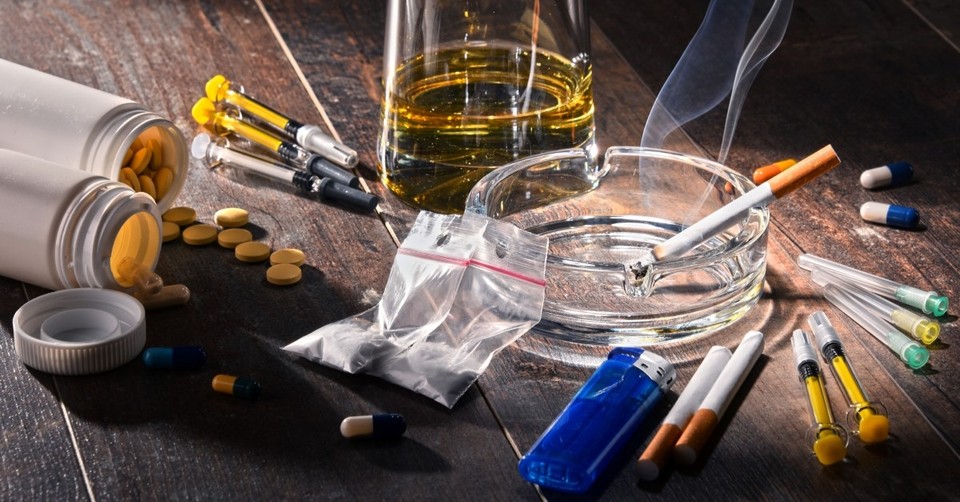What Does the Bible Say about Drugs?

Parents, teachers, and church leaders tell us to stay away from drugs. But what does the Bible say about drugs?
Drugs are a regular part of our life. Whether safe products like aspirin or prescriptions for temporary or long-term relief, we commonly use them. However, some are considered dangerous, and Christians often place recreational drug use, especially illegal drugs, within the sin category. Yet, as a group who claim we base our lives on Scripture’s teachings, we need to ask: What does the Bible have to say about these things?
Does the Bible Say Anything Specifically about Drugs?
The Bible addresses various aspects of human behavior, morality, and societal norms but does not explicitly mention drugs in the modern sense. This can be partly attributed to the fact that the recreational drugs we experience today (at least in the form we have them) didn’t exist thousands of years ago in the Jewish or Roman cultures. However, indirect references and principles within the scriptures can be applied.
One passage often cited in discussions about substances comes from the book of Revelation. Revelation 9:21 states, “Nor did they repent of their murders, their magic arts, their sexual immorality or their thefts.” The Greek word used for “magic arts” in this verse is “pharmakeia,” similar to pharmaceuticals, which some scholars interpret as referring to drug use or the practice of witchcraft and sorcery, which are often connected within pagan worship to hallucinate and manufacture religious visions. While this verse doesn’t explicitly condemn drug use, it suggests a connection between immoral practices and the use of mind-altering substances.
Beyond this indirect reference, several biblical principles can be applied to the discussion of drugs, essentially recreational use. The overarching theme is stewardship, self-control, and honoring the body as a temple of the Holy Spirit. In 1 Corinthians 6:19-20, the apostle Paul writes, “Do you not know that your bodies are temples of the Holy Spirit, who is in you, whom you have received from God? You are not your own; you were bought at a price. Therefore honor God with your bodies.” Regular drug use, even prescriptions, can seriously harm the body over time, even to the extreme of overdoses and addictions. This passage emphasizes the importance of treating one’s body with respect and avoiding anything that would harm or defile it.
Another relevant principle appears in Galatians 5:19-21, where Paul lists various works of the flesh, including drunkenness and sorcery. While the Greek word pharmakeia is used here, it is often interpreted broadly to encompass any form of drug use or substance abuse, the most common of the day being alcohol.
Regarding alcohol, the Bible teaches the importance of sobriety and clear-mindedness. In 1 Peter 5:8, believers are exhorted to “be alert and of sober mind” because their adversary, the devil, prowls around like a roaring lion seeking someone to devour. This admonition underscores the need for mental clarity and vigilance in spiritual matters, which using drugs can compromise.
The Bible explicitly condemns drunkenness in several passages, emphasizing the negative consequences it brings and the importance of temperance and self-control. Galatians includes drunkenness as a work of the flesh, and in Ephesians 5:18, believers are admonished to “not get drunk on wine, which leads to debauchery. Instead, be filled with the Spirit.” Similarly, Proverbs 20:1 warns, “Wine is a mocker, strong drink is raging: and whosoever is deceived thereby is not wise.”
These verses give us broad principles to apply. First, the false religion associated with manufactured rapture and visions is still common today. Second, the flesh works to feed pleasure and seek to feel good. Thirdly, these experiences weaken the mind, body, and spirit, making people more susceptible to physical (or spiritual) attacks.
What Does the Bible Say about Addiction?
While Scripture doesn’t use the term “addiction,” its principles guide how to overcome destructive habits and live in freedom.
One of the key teachings is self-control. In Galatians 5:22-23, the apostle Paul lists the fruits of the Spirit, including self-control. This implies that the Holy Spirit empowers believers to resist impulses and desires that can lead to addiction. Proverbs 25:28 also emphasizes the importance of self-control, stating that “a man without self-control is like a city broken into and left without walls.” This imagery illustrates the vulnerability and chaos that result from lacking self-discipline.
Moreover, the Bible warns against the enslaving nature of indulgence and excess. In 1 Corinthians 6:12, Paul declares, “I will not be mastered by anything.” This statement highlights the danger of allowing anything to gain control over one’s life, whether it be substance abuse, unhealthy habits, or sinful behaviors. The apostle Peter also cautions against being “carried away by the lust of the flesh” (2 Peter 2:18), indicating the potential for addiction to lead individuals astray from God’s will and purpose for their lives.
Addiction becomes a type of slavery. Just as enslaved people are bound by chains and compelled to serve their masters, those trapped in addiction find themselves bound by their cravings and impulses, unable to break free from the cycle of dependency.
In John 8:34, Jesus declares, “Truly, truly, I say to you, everyone who practices sin is a slave to sin.” Like slaves to sin, individuals struggling with addiction are controlled by their compulsions and desires, unable to resist their cravings or break free from their destructive habits.
Furthermore, addiction often leads to a downward spiral of consequences, similar to the degradation experienced by enslaved people. Proverbs 5:22 describes how “the iniquities of the wicked ensnare him, and he is held fast in the cords of his sin.” This imagery vividly portrays the entrapment and entanglement that result from giving in to sinful behaviors, including addiction.
Christ makes believers completely free (John 8:36), and he came for this reason. The New Testament mentions a new law, the law of liberty (James 2:10-13). Freedom should rule the life of the Christian, as contradictory as that might sound, and when anything controls a person, whether a job or another person or our own lusts, they are no longer free.
Something will control people, one way or another, and the correct ruler is the King of Kings, who loves and gives of himself for their eternal good. Jesus came to free people from bondage.
Does the Bible Say Anything about Getting Off Drugs?
The Bible doesn’t specifically address drug rehabilitation programs as we see them today. However, its principles guide how individuals can break free from the bondage of addiction and find true freedom in Christ.
One central biblical theme is freedom from slavery, both physical and spiritual. In the Old Testament, the Israelites were delivered from bondage in Egypt by God’s hand, symbolizing liberation from oppression and bondage. Similarly, in the New Testament, Jesus Christ is presented as the ultimate liberator who came to set captives free (Luke 4:18). This includes freedom from the slavery of sin and its destructive consequences.
The apostle Paul often used the imagery of slavery to illustrate the concept of redemption and freedom in Christ. In Romans 6:6-7, he writes, “For we know that our old self was crucified with him so that the body ruled by sin might be done away with, that we should no longer be slaves to sin—because anyone who has died has been set free from sin.” The Gospel contains transforming power, breaking sin’s chains, and enabling believers to live new lives in Christ.
Moreover, the Bible teaches that true freedom from addiction begins with acknowledging one’s need for help and surrendering to God’s grace. In James 4:7, believers are exhorted to “submit yourselves, then, to God. Resist the devil, and he will flee from you.” By submitting to God’s will and resisting the enemy’s temptations, individuals can experience victory over their struggles.
Additionally, the Bible emphasizes the role of community and support in freedom from addiction. In Galatians 6:2, believers are instructed to “carry each other’s burdens, and in this way, you will fulfill the law of Christ.” Paul emphasizes accountability, encouragement, and mutual support are key to overcoming addiction. Individuals can find strength and hope in their recovery journey by surrounding themselves with fellow believers who can offer guidance, prayer, and practical assistance.
Furthermore, the Bible teaches that true freedom from addiction is not merely the absence of substance dependency but a transformed heart and mind. In Romans 12:2, Paul writes, “Do not conform to the pattern of this world, but be transformed by the renewing of your mind. Then you will be able to test and approve what God’s will is—his good, pleasing and perfect will.” All people, whether struggling with addiction or not, need a radical shift in perspective, resulting in revolutionizing the lifestyle enabled by the power of God’s Spirit working within believers.
How Can Christians Help Fellow Believers Struggling with Drugs?
Christians play a pivotal role in supporting fellow believers who are struggling with drugs, offering compassionate assistance and practical guidance to aid in their journey towards healing and recovery.
Firstly, we should stop calling people addicts. Too often in our culture and the English language, we give the power of identity to a struggle or challenge, and we should support the terminology change. To say someone as an addict identifies them with sin, not change. People are individuals made in God’s image, and those who have been born again are now new creations in Christ, born from Heaven. People struggle with addiction, and using this terminology separates the struggle from their core identity.
Next, we can provide a safe and non-judgmental environment where individuals feel comfortable sharing their struggles. Approaching them with empathy and understanding rather than condemnation can foster trust and open communication. By listening attentively, offering emotional support, and affirming their identity as God’s children, we alleviate feelings of isolation and shame often associated with addiction.
Prayer powerfully supports those battling drug addiction. We’ve been given access to the throne room of God to intercede as priests of the Most High, and what better reason to use it than the freedom of brothers and sisters? God breaks chains, so we should ask for his supernatural intervention and deliverance. Additionally, praying with individuals directly can offer comfort and reassurance, reminding them of God’s presence and ability to transform their lives.
Practical assistance is also essential in helping individuals navigate addiction’s complexities. We can assist in connecting them with professional resources such as counselors, therapists, or addiction recovery programs. Providing transportation to appointments or accompanying them to support group meetings demonstrates tangible support. Further practical options would be helping with job interviews, career opportunities, or housing options.
Creating or joining a supportive community is vital in helping individuals overcome drug addiction. We should facilitate connections with other believers who have experienced similar struggles or are further along in their recovery journey. Through accountability partnerships and support groups within the church community, individuals can find solidarity, encouragement, and shared experiences that foster growth and resilience.
Education is another critical aspect. The local church should learn about addiction, its causes, effects, and available treatment options. Understanding addiction allows them to offer informed support, challenge stigmatizing beliefs, and provide practical advice on how members can help struggling peers.
Above all, we must continually point their struggling brothers and sisters to the hope and transformation found in Jesus Christ. We all need reminders of God’s unconditional love, grace, and redemptive power, which instills hope and inspires faith amid the struggles that we all have. These types of communities help those with addictions find healing, restoration, and freedom from drug addiction.
Photo Credit: ©GettyImages/monticelllo

This article is part of our larger Spiritual Life resource meant to answer your questions about the Bible, God, and the Christian faith. Visit our most popular questions on “What does the Bible say about…” questions answered by well-known Christians and theologians to find more inspiration. Remember that as you read these articles, the Holy Spirit will give you understanding and discernment to make the right decision for your walk with Jesus Christ! If you know others struggling with these faith questions, please share and help others discover the truth on these controversial topics.
- What Does the Bible Say about Loneliness?
- What Does the Bible Say about Tattoos?
- What Does the Bible Say about Forgiveness?
- What Does the Bible Say about Swearing?
- What Does the Bible Say about Gambling?
Originally published February 09, 2024.





